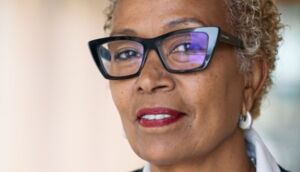Danone created the Ecosystem Fund to create social and economic value for the partners who make up Danone’s ecosystem: farmers, suppliers and subcontractors, transport and logistics operators, distributors, territories and local authorities .
Social impacts
- Danone’s Milk collection communities project in Egypt allow a real ownership of centers by the local farming community, taking in all smallholders. This new supply chain is involving nearly 1,600 farmers.
- Danone’s Kiteiras project has created a network of direct sales to consumers through women. It provides them with social security, minimum wage and guidance to improve their living conditions. 200 jobs have been created so far.
- Danone’s Pepenadores project in Mexico has saved 75,000 trees, 50,000 liters of water and 16,000 kW of energy. The project has also reduced emissions by 15,000 tons of C02.
Business impacts
- Has helped secure sourcing of raw materials (from milk to rPET) and ensure Danone’s licence to operate.
- Has contribute to company reputation and helped attract and retain talented people, as well as allowing the develpment of new forms of leadership and sets of skills.
- Has provided a mechanism for testing innovative, sustainable and inclusive business models, and connecting to key stakeholders.
“ How can a company hope to develop in a social and economic desert? It is in a company’s best interest to take good care of its economic and social environment, in one word, its ecosystem. ”
– Franck Riboud,
Danone CEO
Danone’s Ecosystem Fund is an endowment fund of 100 million euros aimed at strengthening Danone’s ecosystem while creating social and economic value.
It allows Danone to design and test innovative, sustainable and inclusive business models to maximise Danone’s economic and social footprint.
Ultimately, the ambition of the Fund is to sustainably transform the business practices of the Group by acting positively throughout the value chain.
Together with 38 Danone subsidiaries and 38 non-profit partners, the Fund supports 47 active projects in 21 countries.
The Fund supports initiatives with general interest purposes in the territories where they operate, and creates social and societal value. Project beneficiaries are of two kinds: direct and indirect. Once a job is created (e.g. a micro-entrepreneur, a door-to-door vendor), the income generated will positively impact the development of their family, who are the “indirect” beneficiaries. The current ambition of the projects is to have an impact on the lives of 50,000 direct beneficiaries.
All 47 projects come within the scope of five strategic business axes, targeting various groups of people:
- Responsible sourcing: Securing the supply of raw materials locally in all countries where Danone manufactures fresh dairy products by improving the life conditions and incomes of farming families, smallholders, and raw material producers with limited access to the market.
- Distribution: Developing new micro-distribution channels to increase accessibility of Danone products and promote the benefits of the categories (healthy nutrition and hydration), especially targeting disadvantaged women in emerging economies as a means to support economic and social inclusion.
- Recycling: Structuring an otherwise informal economic sector through the creation of cooperatives to collect and transform packaging materials and give them a market value. This will provide income and better life conditions to wastepickers.
- Local development: The projects have an active contribution to initiatives that bring local economic, social and environmental value.
- Caring services: Mainly focused on fragile populations, caring services projects aim at sensitising and training health care professionals on the link between nutrition and health for dependent people, particularly the ageing population.
The Unilever International Award supported by Business Fights Poverty recognises businesses that have positively impacted one or more of the United Nations Millennium Development Goals (MDGs). The Award is part of Business in the Community’s Responsible Business Awards.
The companies awarded a Big Tick in this category have positively impacted over seven million beneficiaries. These companies are helping to eradicate extreme poverty, promote gender equality, support various aspects of the health agenda, and build global partnerships for development between civil society, business and governments. These programmes demonstrate innovation, scale and the potential to be replicated, highlighting the importance of business as a key enabler of the MDGs.
The case studies profiled in this week’s special on Business Fights Poverty provide more detail about the programmes that achieved a Big Tick and those shortlisted for the top accolade. For more information, click here.
This article was first published on Business In The Community and is reproduced with permission.










